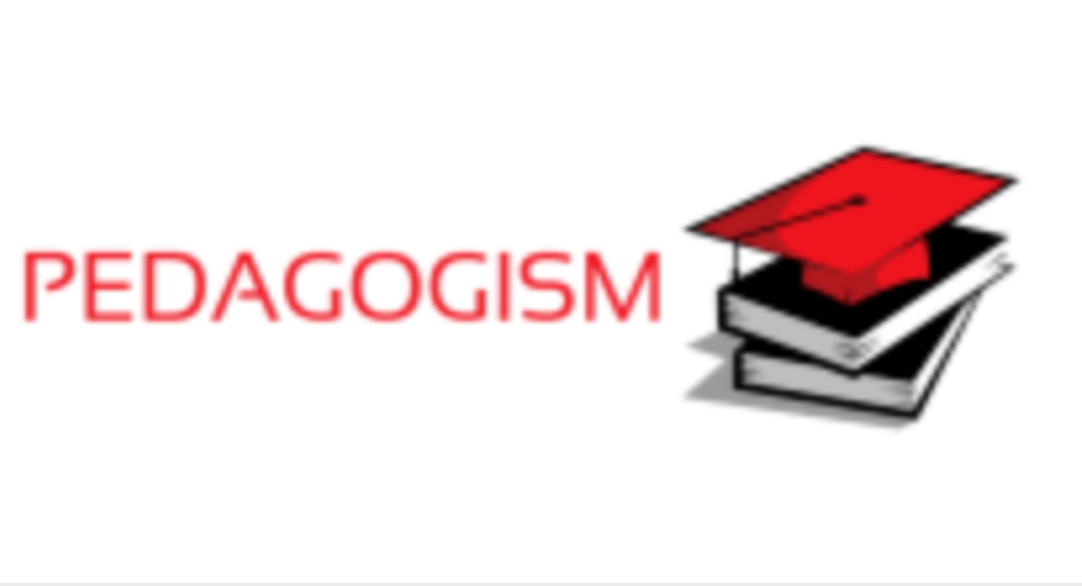Comparison of Education Between Guyana and United States

Humans beings are to be educated. For years, education has been considered beyond a doubt to be extremely important and those who are educated have remarkable achievements and display high level of discipline and proficiency at whatever they do. Research have shown that good education helps to significantly reduce the level of poorness and violence in a community, by offering the necessary social tolerance to sustain unity. By furnishing members with the necessary technical knowledge and skills in conformity with the growing needs of work place and changing technological conditions. They can live and work in a more comfortable environment. At one point, education was a privilege and only for the rich. However, today, education has become a right and everyone has gained that right. But what really is education?
Education is the process by which a society transmits its knowledge, values, and expectations to its members, so they can contribute and function effectively in the community in which they live. To the sociologist, education takes place in society and is a social thing. Schein (1997) noted that everything which comprises the way of life of a society or a group of people is learned. Nothing of it is biologically inherited and describes education as “the process by which the individual develops physically, morally, and socially to deal with the challenges that face him in the group into which he was born and within which he identifies and must function.”
Sociologist defines society as the people who interact in such a way as to share a common culture. Culture is the way of life of the people living in a society. Education can be either formal or informal and can occur in an array of settings. A formal education means what you learned in school or in an organized setting and has a curriculum to follow. Such structured system of learning is governed by the Ministry of Education through the government of the day. Any institution that offers formal education must be certified or licensed with a curriculum that is governed by the education body. An individual’s formal education usually commences at nursery or kindergarten and extends through high school for most and college for a selected few. While informal education is about what you have learnt on your own. It is knowledge gained and skills learnt outside of a structured program. For example, the way I learnt to brush my teeth and the way I play tennis and is teaching my son to play tennis is all informal. Although we commonly think of education as tied to school systems, it is usually spontaneous, self-motivated, and lots of fun. I remember the day my daughter learnt to finally ride her bike without training wheels. It was the happiest day of her life.
The History of Education
In the middle ages, the church was the main educator, with school in monasteries and cathedrals where students were taught mainly to become priests. During this same era universities began to offer subjects in law, theology, and medicine, but they were only available to the most privileged members of society. Beginning in the nineteenth century, schooling began to be considered a necessity for preparing children to enter modern industrial occupations. The leading thinkers of the day, such as Locke and Franklin believed that it is the government’s responsibility to provide basic education to all its citizens.
Further, education began expanding with the development of new technology, but its role and form varies from country to country. In Guyana, the country of my birth, education is not only mandatory from primary to university, but it is also free from nursery level to university level. In this essay, I will compare the education system between Guyana where I was born, raised, and educated and the United States where I received post-secondary education and is raising two children.
Comparing Guyana’s Education to United States’ Education
In Guyana, there is no pre-school, kindergarten years begins from three years five-months-old to five years five months old. During your two-year stint at kindergarten the child is thought the alphabet, numbers, colors, shapes, among other basic childhood principles. This nursery level education as we call it is not mandatory, however every Guyanese child is assured placement in a school within his/her district. Even though parents can choose whether to send their kids to nursery schools it is a day and time they all look forward to. Parents play an important role and contribute significantly to the success of these schools. In the United States the pre-school is the first level of education and it was introduced to the school system and made free by the Mayor Bill Deblazio. Like Guyana attendance at school for children under six is not compulsory. As a parent I support preschool but believe it should be non-academic in the sense that no clear academic targets are set. Socialization into school culture and learning to work together with other peers should be the main goal. Kindergarten begins from an older age of five years here in the United States and it is only for one year. A kindergarten child is far more advanced in terms of vocabulary, academics, and technology in the united states than a kindergarten child living in Guyana.
Following nursery education is the primary level of education. This level of education is, by law, compulsory in Guyana hence parents can be deemed negligent if a child older than five years and nine months is not enrolled and does not attend school. This is the similar for the United States. The Ministry of Education in Guyana believes that homework can be beneficial to students, but if it is over used it can defeat its purpose. For this reason, students in Guyana are given very light if any homework during their primary years of education. After school in the afternoon the child is required to take a nap instead then plays or do whatever he chooses to do. On the other hand, my seven-year-old child in the United States is tasked with tons of homework to complete each day. After which he is very tired. There is hardly any time for development of other areas of interest the child might have. This sometimes frustrates him and me as the parent. For this reason, I agree with O’Neill Brian where he said in an article “Educators must be careful not to over assign homework assignments because homework will cause additional stress on students (Brian 2008).”
Furthermore, in Guyana there is no such thing as gifted and talented schools. Students are not sorted and placed into different groups according to their academic ability, instead they practiced multi-grade teaching where different abilities of learners are learning together. In this kind of setting the more advanced students are viewed as motivators for their more educationally challenge peers. Efforts are made to offer instructions to cater to the needs of learners to better their skills and academic abilities. Advanced learners are given bonuses’ such as grade skipping. Educators believe in each one teaches one and it seems to be working just fine. However, here in the US from as early as five years old students can be tested by the department of education for gifted and talented schools if you score above the ninety-percentile mark you are considered “gifted”. Isn’t this pressure already for these babies? As if that isn’t enough torture, those who go to regular public schools are placed in groups according to academic ability. This for me is labeling and I totally disagree with it.
In the United States students, students are tested in areas of Reading, Writing, and Math even though they are being exposed to Science and other areas throughout the school year. The main form of testing in this country is predominantly a multiple choice. This type of testing grants unprepared students the opportunity to guess, and with guesses that are right, points are gained for content they haven’t mastered. Whereas, in Guyana learners are tested in each subject area being taught, which includes Math, Reading, Writing, Science, and Social Studies from as early as seven years old; the main form of testing, is essay type questions, and each question has several parts. This form of testing, I believe is better because it really tests the students’ knowledge of what was taught. Also, it helps with the development of student writing skills, particularly the ability to formulate arguments supported by reasoning and evidence.
General Function of Education
Ultimately, sociologist has long been interested in the hidden curriculum, the lessons that students learn indirectly but that are an implicit part of their socialization in the school environment (Jackson 1968). Education serves three main functions regardless of what country or state: the functional theory, conflict theory, and symbolic interaction approaches (Ballantine & Hammack, 2009). Functional theory is aimed at fulfilling societies needs by efficiently equipping members to function effectively in the existing and growing areas of work. Socialization by far play a very important role in education. The required norms, values, and skills needed to function in society is learnt through education. Society’s norms and values are taught at home and reinforced in schools. Worldwide norms and values entail respect for the law, patriotism (respect for the flag, stand at attention for the national anthem), punctuality (showing respect for time), uniqueness and competition. From early age children compete as individuals over grades, for a sense of belonging among peers; as groups over sport prizes among other things. (Sayer 2010) How a child performs collectively is just as important as how well he does as an individual.
Secondly, social integration is just as important and plays a vital role in the education system. In a productive society, members agree to an everyday set of values and beliefs. In the United states, hundreds of immigrant children are enrolled in the school system daily. Each with its own native tongue, culture, and belief. Respect for this diversity is what would make the school system and the extended community successful. (Carnevale and Cheah 2011).
Thirdly, social placement also plays an important role in our education system. When educators group students according to what they believe is their academic ability in categories such as gifted and talented, educationally challenged, sports oriented to name a few, they say it is better teach them at a level that they understand to bring out the best in them. This method educators believe better prepares them for their position later in life. Critics believe that with this sort of grouping and placement many students are often misjudged and placed lower than their ability. When this happens, it can cause children to lose out on opportunity such as scholarships, grants, and placement in colleges (Turner 1990) by the time they are sixteen.
Social and cultural innovation is the fourth general function of education. Our scientists would not be able to predict and discover, our artists and poets would not be able to produce great works of art, our engineers cannot come up with great and new designs without first mastering the first three functions, along with being well educated and knowledgeable in every subject area in their chosen path.
In conclusion, as societies change, so does the education system everywhere. For example, a big part of being a student today is knowing how to use digital technology. The typical student today has a good amount of work online, whether it’s reading an e-book, or watching videos as homework. Digital technology is so integrated into the teaching and learning process that many students now take it for granted.
References
Ballantin and Hammack. 2009 “Sociology and Education.”
www.washingtonpost.com
Brian, O’Neill. 2008. “Looking Ahead: Education Systems.” Fortune: 52
Carnevale, A. P., Rose, S. J., and Cheah, B. 2011. The College Payoff: Education, Occupations, Lifetime Earnings. Washington, DC: The Georgetown University Center on Education and The Workforce.
Jackson, Phillip.1968. Life in Classrooms. New York: Holt, Rinehart, And Winston.
Lewis, Nancy. 2011. “The College Payoff: Education, Occupation, Lifetime earnings.” https://youthtoday.org/2011/08/the-college-payoff-education occupation-lifetime-earnings/
Sayer, Liana 2010. “Education in Its Traditional Form” Berkley: Seal Press.
Schein, Edgar H. 1997. Organizational Culture and Leadership. San Francisco, Jossey-Bass
Turner, Ralph H. 1990. “The Role and The Person.” American Journal Of
Sociology 84 (1): 1-23







Responses